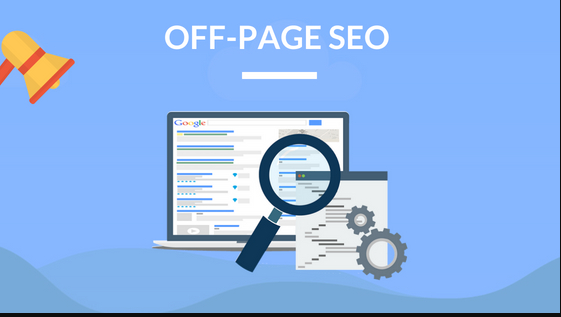In the digital landscape, Search Engine Optimization (SEO) plays a pivotal role in enhancing online visibility and driving organic traffic to websites. While some businesses allocate substantial budgets to SEO, others may face budget constraints. However, affordable SEO strategies can still yield significant results without breaking the bank. In this comprehensive guide, we’ll explore cost-effective SEO techniques that deliver tangible outcomes.
What are SEO Strategies?
SEO strategies are techniques used to optimize a website’s visibility and ranking on search engine results pages (SERPs). This includes keyword research, on-page optimization, content creation, link building, and technical optimizations.

The goal is to increase organic traffic, improve user experience, and enhance a site’s authority and relevance to search engines.
Quality Content Creation
Content remains king in the realm of SEO. Creating high-quality, relevant content tailored to your target audience is crucial for search engine rankings. Start by conducting keyword research to identify relevant terms and phrases. Incorporate these keywords naturally into your content, including meta tags, headings, and body text.

Optimize meta descriptions to improve click-through rates (CTRs) in search results. Regularly update and refresh content to keep it relevant and engaging for users and search engines alike.
On-Page Optimization Techniques
On-page SEO focuses on optimizing individual web pages for search engines. Key elements include title tags, meta descriptions, header tags (H1, H2, etc.), and image alt text. Craft compelling title tags and meta descriptions that accurately describe your content and entice users to click.
Use header tags to structure content logically and improve readability. Ensure mobile optimization for seamless user experiences across devices, which also positively impacts search rankings.
Off-Page SEO Strategies
Off-page SEO involves activities outside your website that influence search engine rankings. Building quality backlinks from reputable websites remains a cornerstone of off-page optimization. Consider guest blogging on relevant platforms to reach new audiences and earn backlinks.
Engage actively on social media to increase brand visibility and attract organic traffic. Leverage online directories and local listings to improve local SEO efforts. Monitor and manage online reviews and testimonials to maintain a positive reputation.

| Off-Page SEO Strategies | Explanation |
| Building Quality Backlinks | Acquire backlinks from high-authority websites in your industry. This boosts your site’s credibility and improves search engine rankings. |
| Guest Blogging | Contribute guest posts to relevant and reputable blogs. This not only exposes your brand to new audiences but also earns valuable backlinks to your site. |
| Social Media Engagement | Actively engage with your audience on social media platforms. Regular posting, interacting with followers, and sharing valuable content can increase brand visibility and drive organic traffic. |
| Online Directories and Listings | List your business on online directories and local listings. This helps improve your local SEO efforts by making your business more visible to local customers searching for related services or products. |
| Monitor Online Reviews | Keep track of online reviews and testimonials about your business. Respond promptly to feedback, address any concerns, and maintain a positive reputation online. |
Local SEO Tactics
For businesses targeting specific geographic areas, local SEO is paramount. Optimize your Google My Business profile with accurate information, photos as well as customer reviews. Use location-based keywords in content, meta tags, and structured data accordingly to improve local search visibility.

Build citations on reputable directories and local websites to establish authority within your target location. Encourage satisfied customers to leave positive reviews, as they can significantly impact local search rankings.
Technical SEO Best Practices
Technical SEO focuses on optimizing the technical aspects of your website for search engines. Ensure your site loads quickly, as page speed is a critical ranking factor. Secondly, optimize for mobile responsiveness to accommodate users on smartphones and tablets.
Implement structured data markup (schema.org) to help search engines understand your content better. Use XML sitemaps as well as canonical tags to guide search engine crawlers and avoid duplicate content issues.
- Page Speed Optimization: Improve website loading times to enhance user experience and meet search engine standards.
- Mobile Responsiveness: Ensure your website is designed to function well on mobile devices, as more users access the internet via smartphones and tablets.
- Structured Data Markup: Utilize schema.org markup to provide search engines with detailed information about your content, such as reviews, ratings, and product information.
- XML Sitemaps: Create XML sitemaps to facilitate search engine crawling and indexing of your website’s pages, making it easier for them to understand your site’s structure.
- Canonical Tags: Implement canonical tags to specify the preferred version of duplicate or similar content, helping search engines avoid indexing duplicate pages and impacting your site’s ranking.
- Optimize Meta Tags: Craft compelling and relevant meta titles and descriptions for each page, incorporating target keywords naturally to improve click-through rates and search engine visibility.
Conclusion
Effective SEO doesn’t always require a hefty budget. By implementing affordable strategies such as quality content creation, on-page optimization, off-page tactics, local SEO efforts, and technical best practices, businesses can improve their search rankings and attract organic traffic.
It’s essential to monitor SEO performance regularly, analyze results, and refine strategies accordingly To boost your sales . Moreover, with dedication and strategic execution, affordable SEO strategies can yield tangible results and contribute to long-term digital success.
Read more: How Ecommerce Solutions can skyrocket your Sales
FAQs:
Essential tools include Google Analytics for tracking website performance, keyword research tools like SEMrush or Ahrefs, content management systems (CMS) with SEO plugins like WordPress with Yoast SEO,
SEO results can vary based on factors like website age, competition, and strategy implementation. Generally, significant improvements may take several months to a year, but small gains can be noticeable within weeks of implementing effective SEO strategies.
Yes, small businesses can compete effectively in SEO by focusing on niche keywords, local SEO tactics, creating valuable content, as well as building quality backlinks. Agility, creativity, and targeted strategies can often outperform larger competitors in specific areas.
Common mistakes include keyword stuffing, neglecting mobile optimization, ignoring technical SEO issues, pursuing low-quality backlinks, as well as neglecting local SEO efforts.

Alex Mitch
Welcome to my blog! With over 10 years in digital marketing , I’ve seen its incredible impact on smaller businesses. Join me as we explore how digital marketing can grow your audience and boost your business. Whether you’re an experienced entrepreneur or just starting out, you’ll find practical tips and insights to enhance your digital marketing strategies.





